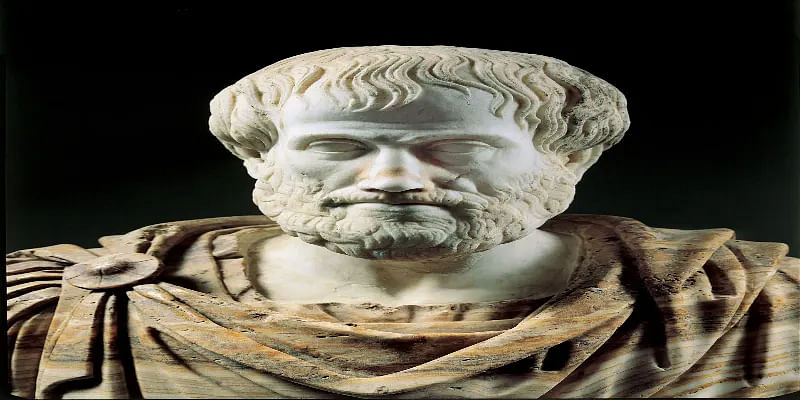The father of zoology is Aristotle, a Greek philosopher whose notable works in the geology discipline are the classification of species, the study of animal behavior and physiology, the theory of epigenesis, and the ladder of life.
Table of Contents
Aristotle is known as the father of zoology for his significant contributions to zoology, which include a wealth of knowledge about the diversity, structure, and behavior of animals, as well as the examination of the various components of living things and the origins of the field of taxonomy.
There were just 500 species classified into eight classes at the time of Aristotle.
Father of Zoology: Aristotle
The Greek philosopher Aristotle is frequently referred to as the father of zoology. He established the groundwork for the scientific study of animals in his work "Historia Animalium." Aristotle researched the anatomy, behavior, and habitats of many species, classifying and describing them along the way.
- He established concepts like the Scala Naturae, a hierarchical classification system.
- The study of animal life, evolution, anatomy, physiology, and behavior is known as zoology, and he made significant contributions to this field.
- Aristotle's vast knowledge covered a multitude of subjects, including the many natures and anatomical traits of animals.
- He was notably responsible for the creation of the first animal classification scheme, demonstrating his significant influence on the study of living things.
Also Check: Who is the Father of Chemistry?
The Biography of Aristotle
Aristotle the father of zoology was born in 384 BC; the other details related to his birthplace, education, notable works in zoology, and his recognition are tabulated below:
| Parameters | Details |
| Credits | Father of Zoology Father of Biology |
| Birth | 384 BC |
| Birthplace | Stagira, North Greece |
| Education | Platonic Academy |
| Notable Works in Zoology |
|
| Death | 322 BC |
Also Check: Who is the Father of Biology?
Notable Works of Aristotle in Zoology
The Greek philosopher Aristotle is regarded as the founding father of zoology. His "Historia Animalium" established the core ideas that remain important in zoology today, classified species, and described their anatomy, behavior, and habitats. It also created the groundwork for the scientific study of animals.
Aristotle used an empirical and systematic approach to his studies of animals. He observed closely, dissected the creatures to learn about their physiology, and then categorized the species according to their behavior and physiological likenesses and dislikes.
Categorization laid the foundation for later taxonomic systems as it was the earliest known attempt at systematic classification in the history of life.
Even if his methods and beliefs are archaic by today's standards, Aristotle's zoology represented a quantum leap in the development of human understanding during his day.
1. Classification of Species
The first person to try grouping animals according to physiological similarities and differences, as well as behavior, was Aristotle. In the annals of biology, this was the first documented endeavor at a systematic classification.
Aristotle carefully observed a broad variety of creatures, both native and foreign, and used this information to develop his classification system. He categorized related creatures together based on his observations of their habits, habitats, and physical traits.
Even though it was less sophisticated than taxonomic systems today, this categorization scheme was revolutionary in its day and laid the groundwork for later advancements in biological classification.
2. Study of Animal Behavior and Physiology
In his zoology, Aristotle observed and studied a wide variety of creatures systematically, noting their similarities and attempting to group like animals together.
He studied creatures from throughout Greece, and it's possible that Alexander the Great, his former pupil and benefactor, gave him exotic specimens.
His observations extended beyond an animal's outward appearance. In order to comprehend the internal anatomy and physiology of animals, he also dissected them.
He documented how the same organs had entirely distinct roles and observed how the same organs differed in other animals.
Also Check: Who is the Father of Science?
3. Theory of Epigenesis
Contrary to the widely held notion that all of the organs were there from conception and just increased in size, Aristotle offered the theory of epigenesis, in which the organs evolved in a specific order.His studies of developing avian embryos served as the foundation for this notion. He observed that as the embryo developed, some organs emerged before others.
Even though his observations were not perfect, he thought the spinal cord, rather than the heart, was the first organ to develop his theory of epigenesis.
This marked a substantial break from the conventional wisdom of the day and set the stage for later investigations into embryology.
Rewards and Recognition
In 1995, the Aristotle Award was instituted, resulting in his posthumous recognition. This award was granted to all the educators who significantly impacted the kids' academic development and advancement.
- First given out in 1995, the Aristotle Award honors supporting faculty members whose unwavering dedication to students' educational experiences has had a substantial and long-lasting effect on their professional performance and, thus, a major impact on members over an extended period.
- In honor of Aristotle, the Aristotle Mountains are located in Antarctica.
- He was the first to hypothesize the presence of a landmass in the southern high-latitude zone, which he named Antarctica, in his book Meteorology.
Aristotle's Later Life
Major and significant contributions of Aristotle were Physics, Metaphysics, Nicomachean Ethics, Politics, On the Soul, and Poetics are among his most significant works. "Logic, metaphysics, mathematics, physics, biology, botany, ethics, politics, agriculture, medicine, dance, and theater".
Aristotle passed away from natural causes in Chalcis, Euphorbia. The father of biology is thought to have left a will expressing his desire to be buried next to his wife when he passed away.
Also Read: Who is the Father of Genetic Engineering?























POST YOUR COMMENT